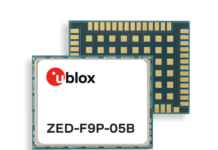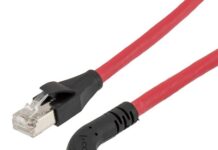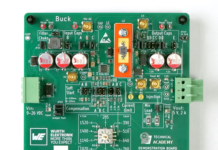
Standards-Compliant Measurement of PAM4 Signals at Electrical I/F of 50 to 400G Optical Modules
Anritsu Corporation is pleased to announce the release of its Signal Processing Software Option-098 adding upgraded functions for evaluating PAM4 differential electrical signals to the BERTWave Sampling Oscilloscope MP2110A.
This new option supports standards-compliant measurement of IEEE 802.3 optical-module electrical interfaces to facilitate faster communications at data centers and mobile networks by upgrading evaluation efficiency for 50 to 400G optical modules using PAM4 technology.
Development Background
Data centers are currently switching to PAM4 optical modules to cope with large increases in communications traffic on mobile networks. Additionally, in line with the need for easier configuration of flexible networks, PAM4 optical modules for communications support many more communications speeds ranging from 50 to 800 Gbit/s than the conventional NRZ technology.
Optical modules are devices supporting long-distance communications by converting electrical signals of network equipment to optical signals. With conventional optical modules using NRZ technology, multivendor interconnectivity validation of the optical-interface side connections between equipment was regarded as important while close inspection of the interconnectivity of electrical interfaces was seen as unnecessary. However, with speed increases using PAM4 optical modules supporting different speeds, the various module types must also be supported at the equipment side. Furthermore, under the conventional system, network equipment and optical modules were procured from the same vendor, but the current trend to help cost-cutting is to procure equipment and modules from different vendors.
In these circumstances, interconnectivity must be assured not only between interfaces at the optical side but also at the electrical side. Assuring this interconnectivity requires strict evaluation based on the IEEE 802.3 PHY-layer standards.
To meet these upgraded interconnectivity requirements, while continuing to support PAM4 optical interface measurements, Anritsu has now added support for measurement of IEEE 802.3 PAM4 electrical interfaces to its popular MP2110A used by many makers as a sampling oscilloscope for manufacturing optical modules.
Product Outline
The BERTWave MP2110A is an all-in-one instrument combining a sampling oscilloscope for evaluating communication-signal waveforms and a BERT for measuring bit error rates. Various upgrade options are available for customizing the number of sampling-oscilloscope channels, etc., to configure a cost-effective test environment matching requirements. Fast, all-at-once and parallel measurement of four channels assures high production-line throughput.
Adding this newly released Option-098 adds new support for measurement of PAM4 electrical interfaces to the current support for the various IEEE 802.3 PAM4 optical modules now on the market. Measurement using the IEEE 802.3 digital filter and equalizer is also supported. Moreover, the new Embedding/De-embedding function facilitates calibration of the measurement environment, including cables, etc. Installing the built-in Clock Recovery Option-054 permits configuration of a trigger-signal-free measurement environment.
BERTWave MP2110A Features
- Simultaneous built-in single/dual/quad-channel sampling oscilloscope and BERT
- Sampling oscilloscope with world-beating sensitivity for analysis of optical signals from 26-Gbaud NRZ to 53-Gbaud PAM4 plus optional built-in clock recovery unit
- Fast and stable measurement using built-in PC
[Click for more details of MP2110A] https://www.anritsu.com/en-IN/test-measurement/products/mp2110a
Target Markets and Applications
Target Markets
Optical module and optical transmission equipment manufacturing markets
Applications
PHY-layer evaluation of 25 to 400G optical modules, cables, parts, etc., used to configure data centers, Core Metro networks, 4G/5G mobile backhaul, 5G mobile fronthaul, etc.
- Transmission standards: Ethernet, eCPRI/RoE, CPRI, SDH/SONET, OTN, InfiniBand, Fibre Channel
- Optical modules: LFP2/4/8, SFP28, SFP56, QSFP28, QSFP56, OSFP, QSFP-DD
- Cables: Active Optical Cables (AOC), Direct Attach Cables (DAC)
- Devices: TOSA, ROSA, High-Speed Optical Engines, PHY, Driver ICs

















